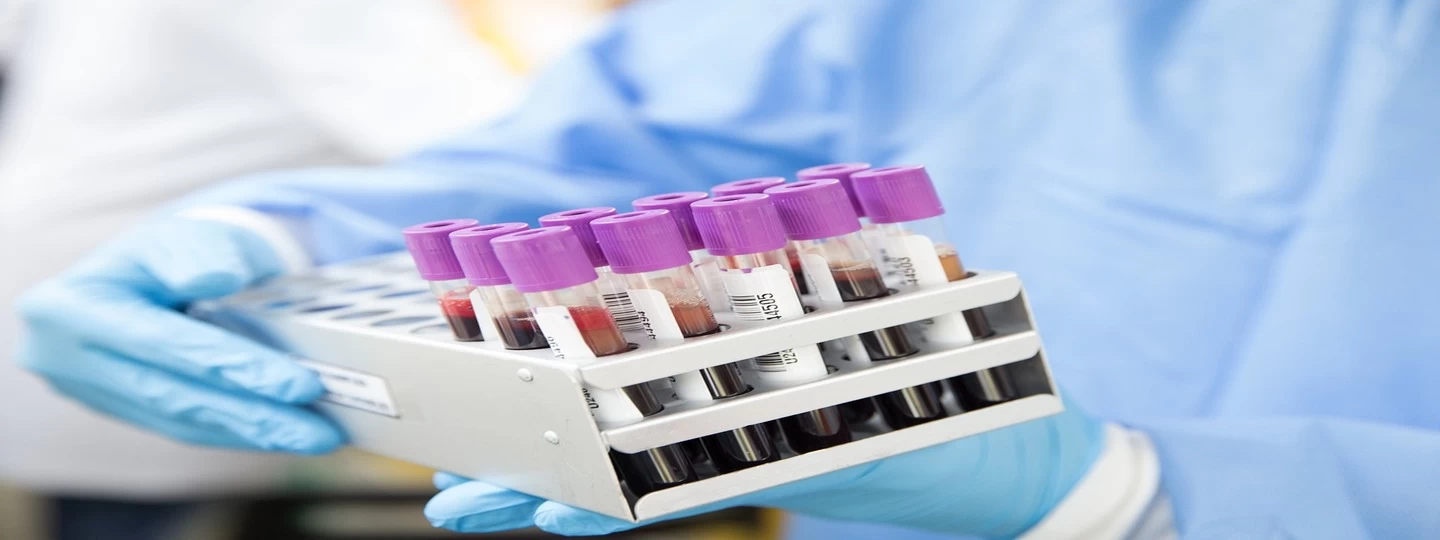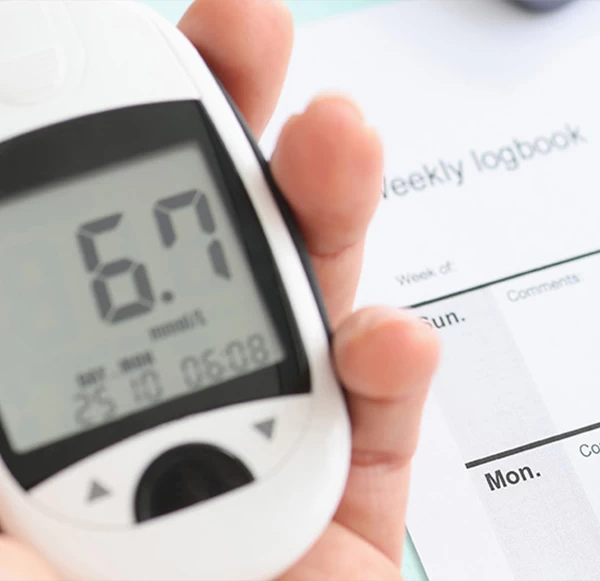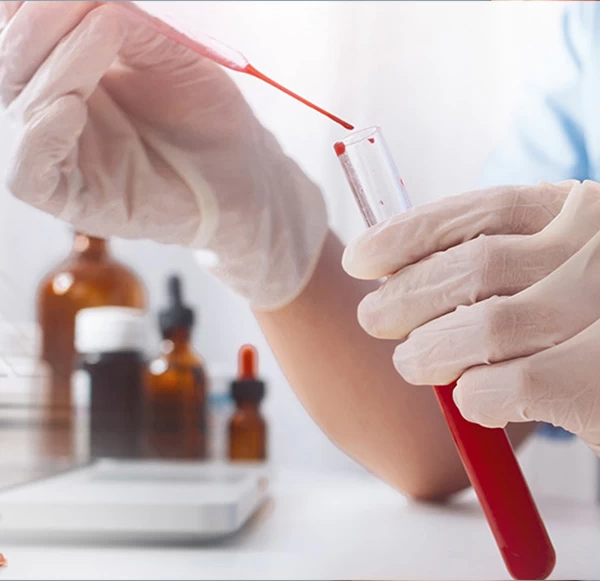- Email Us

Have
you ever wondered how your muscles get the energy to move, or how doctors can
tell if something’s wrong with your heart or muscles just from a simple blood
test? That’s where a special enzyme called Creatine Kinase comes in. Imagine
it as a little assistant that helps your body's cells produce energy,
particularly in your heart, brain, and muscles. However, when your body is
under stress, such as following an injury, intense exercise, or a heart
condition, the levels of this enzyme may increase, giving your doctor crucial
information. We'll discuss what creatine kinase is, why it matters, and what
your levels may indicate about your health in this blog.
What
Does a Creatine Kinase Test Check For?
The creatine kinase enzyme (CK) is mostly
found in your heart and skeletal muscle, with trace levels being found in your
brain. When damaged, the cells in your brain, heart, or skeletal muscles
release creatine kinase into your blood. A protein known as an enzyme serves as
a catalyst to initiate a certain biological reaction. The skeletal muscles,
which are the muscles connected to your bones and tendons, are the primary
source of the trace amount of CK that is typically in your blood. Blood levels
of CK rise in response to any illness, trauma, or incident that damages muscles
and/or disrupts their ability to produce or use energy.
The
primary purpose of a CK test is to assist in the diagnosis and ongoing
monitoring of illnesses and injuries that harm skeletal muscles and result in
elevated blood levels of CK. However, it can also be utilized for disorders
that harm the brain and heart muscle.
Breaking down the Creatine Kinase enzymes:
There are
three distinct kinds of creatine kinase, each of which is associated with a
particular portion of your body. These CK enzyme types can assist physicians in
identifying potential areas of stress or damage in your heart, brain, or
muscles. To learn what your test results may be telling you, let's examine further:
· CK-MB: Damage
to the heart muscle may be indicated by elevated levels of this enzyme.
· CK-BB: Increased amounts of this enzyme could indicate brain injury.
· CK-MM: Damage
to the skeletal muscle may be indicated by elevated levels of this enzyme.
Understanding when a CK test is needed:
If you
have any of the following signs of a muscle problem, your doctor may prescribe
a creatine kinase (CK) test for you:
· Cramping or soreness in the muscles
· Weakening of the muscles
· Dark urine
· Issues of balance
· Numbness or tingling sensation
If you
have experienced a stroke or a muscle injury, your doctor might also request
this test. You may need to repeat the test as CK levels may not peak until
up to two days following specific traumas.
What is the purpose of the Creatine Kinase Test?
A
Creatine Kinase test isn’t just another lab report—it offers vital clues about
what’s happening inside your muscles, heart, and even brain. Here’s how this
test helps doctors detect and monitor underlying health conditions:
· Diagnose
Muscle Damage or Injury: Whenever muscle cells are harmed, CK levels rise.
Increased CK levels may be a sign of muscle injury, whether from trauma,
strenuous activity, or a disease that affects the muscles. High CK levels can
result from diseases including muscle inflammation (myositis), muscle
dystrophy, or rhabdomyolysis, which is a significant breakdown of muscle
tissue.
· Monitoring
Heart Conditions: Keep an eye on cardiac conditions, as the
heart-specific CK-MB isoform of creatine kinase is present. Consequently, CK-MB
level measurement can be used to evaluate heart muscle injury. Though they can
also be high in other heart disorders, including myocarditis (inflammation of
the heart muscle), elevated levels of CK-MB are frequently utilized as an early
sign of a heart attack.
· Identify
Neurological Conditions: Increased CK levels, especially CK-BB, may be a
sign of neurological disorders or brain injury. Changes in CK levels can result
from neurological conditions including stroke or seizures, however these are
less frequent.
· Assess
Treatment Effectiveness: The CK test is occasionally used to track how well
cardiac or muscle injury treatments are working. For instance, a gradual drop
in CK levels could indicate that a heart issue is being treated or that a
muscle damage is recovering.
Factors That May Impact Levels of Creatine Kinase:
· Alcohol
Consumption: Overindulging in alcohol can raise CK levels and
eventually harm muscles.
· Medication: Certain
pharmaceuticals, like statins (drugs that decrease cholesterol), might raise CK
levels, especially in those who have adverse effects like muscle soreness or
weakness.
· Infections
or Inflammatory Diseases: Because of inflammation in the muscles, diseases
including influenza, lupus, or polymyositis can cause increased CK values.
· Exercise: Excessive physical exertion or injury might raise CK levels, particularly
CK-MM, temporarily.
· Stress or
Surgery: Muscle injury from any physical stress, including surgery, can raise CK
levels.
· Neurological
Disorders: Seizures, brain damage, and other neurological disorders may be
indicated by elevated CK-BB levels.
Why choose Mahajan Imaging & Labs for your
Creatine Kinase Test?
When it comes to diagnostic testing, precision,
care, and trust matter the most—Mahajan Imaging & Labs
always stands first. Here’s why thousands of patients choose us:
· Comprehensive
CK testing under one roof
· Convenient
locations and home collection
· Patient-centric
approach
· State-of-the-art
diagnostic equipment
· Trusted
by top doctors and hospitals
Final
verdict, if you have been experiencing unusual muscle cramps, weakness or
symptoms after physical exertion or illness, a CK test can offer valuable
insight.
Ready to take the next step toward better muscle
and heart health?
Book your
Creatine Kinase (CK) test today at Mahajan Imaging & Labs—one
of the most trusted diagnostic centers in Delhi NCR, with expert care, home
collection services, quick reporting, and accurate results, we
make it easier than ever to stay on top of your health.
Frequently Asked Questions
Q1. Should high levels of creatine
kinase concern you?
Ans. Certainly, CK levels may indicate muscle damage, heart
conditions, or neurological issues. While temporary increases can be harmless,
persistently elevated levels should be evaluated by a doctor.
Q2. What are the risks of the test?
Ans. A CK test is a simple blood test, with minimal to zero
risks.
Q3. What is a normal CK range?
Ans. Normal CK levels typically range between 22 to 189
U/L, and this can vary by lab, age, gender, and physical activity. Your
healthcare provider will interpret results in context.
Q4. How should I prepare for a CK
test?
Ans. No special preparation is needed for CK test.




